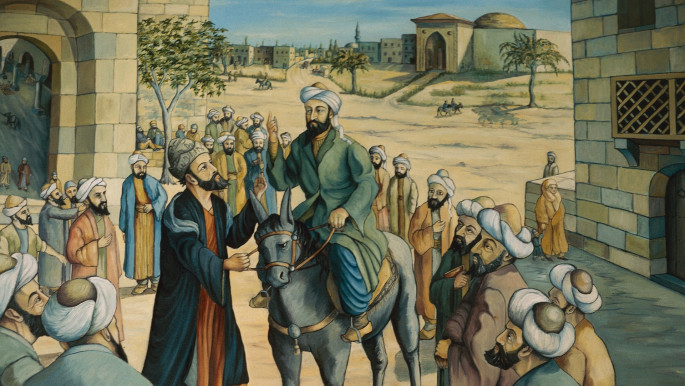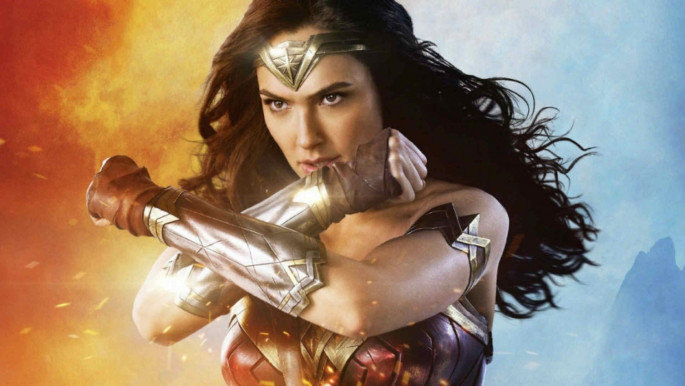Cleopatra casting of Israeli actress Gal Gadot stirs debate in Egypt
On the contrary, the announcement has sparked furious debate on social media, with many believing that an Egyptian actress should have been chosen for the part. Others have accused Hollywood of whitewashing historical Egyptian figures.
"We are fully aware that Cleopatra was not originally Egyptian. But her life story and history took place in Egypt. And she has a great place among Egyptians. The casting is supposed to be authentic….bringing a Zionist hated in the Middle East and North Africa to play the role is clearly stupid and offensive," one social media user, Nada, tweeted.
Other social media users mocked those who criticised the casting choice of Gadot. Famed YouTuber Ahmed Behiry questioned what he described as "the fuss" surrounding the subject.
"I can't understand the fuss about a white Israeli actress portraying Cleopatra!! All those who played Pharaonic [characters] in Hollywood were white and nobody objected. What is funny is that Cleopatra was not [even] Egyptian in the first place," he tweeted.
Born in 69 BC, Cleopatra was descended from an ancient Greek family of rulers, the Ptolemy dynasty, and was the last queen of the Hellenistic kingdom in Egypt.
 |
The announcement has sparked furious debate on social media, with many believing that an Egyptian actress should have been chosen for the part |  |
The new biographical drama was written by Laeta Kalogridis and will be directed by Patty Jenkins, who directed the Wonder Woman sequel also starring Gadot.
Objective visions
 |
|
| Read more: Reclaiming Rumi: How Islam was erased from the Persian poet's work |
Critics and filmmakers have addressed the issue more objectively. Renowned Egyptian critic Mahmoud Kassem lamented the country's lack of attention to Pharaonic history rather than the character being performed by an Israeli.
"Ongoing debates on the subject raise questions about why Egyptian producers are not making use of rich figures in our history," Kassem told The New Arab.
"Cleopatra has been depicted in Western cinema since the 19th century, while Egypt only produced one film in 1943 on the queen, starring the late legendary actress Amina Rizk; and the film was totally lost from the library of the production company. Those in charge of our artistic heritage should be put on trial," he added.
Director Emad El-Bahat agrees with Kassem, while still being against normalisation with Israel. "As long as the film is not Egyptian, the makers have the right to choose any actress they want," he told The New Arab.
"It's better for Egyptians or Arabs to make a film [on Cleopatra] themselves instead of dedicating their time for this war of words," Bahat argued. "Cinema is for all; or else we would have judged our actors who played roles in international films like [the late] Omar Sharif."
 |
We can't ignore the power of cinema. People resort to the historical stories they derive from films as a reference rather than books |  |
Alarming signs
Nevertheless, Egyptology researcher and historian Bassam El-Shamma begs to differ.
"The fact that Paramount chose an Israeli actress nobody knows about much is quite alarming. We can't ignore the power of cinema. People resort to the historical stories they derive from films as a reference rather than books. And sometimes scriptwriters don't write facts accurately," he told The New Arab.
Gadot claimed on Twitter on 12 October that she and her team would "bring Cleopatra to the big screen in a way she's never been seen before: To tell her story for the first time through women's eyes, both behind and in front of the camera."
 |
|
| Read more: There's no shortage of Middle Eastern Wonder Women |
"And we are especially thrilled to be announcing this on #InternationalDayoftheGirl. We hope women and girls all around the world, who aspire to tell stories, will never give up on their dreams and will make their voices heard, by and for other women," she added in another tweet on the same day.
The cinematic character of Cleopatra is no stranger to debate, provoking controversy in the 20th century after being depicted by another ardent supporter of Israel.
Elizabeth Taylor played the famed queen in the 1963 film Cleopatra four years after the late British superstar converted to Judaism and at a time of heightened conflict between the Arab World and Israel. The film - which won four Academy Awards out of the nine it was nominated for - was banned in Egypt and many other Arab states for years.
 |
The cinematic character of Cleopatra is no stranger to debate, provoking controversy in the 1960s after being depicted by Elizabeth Taylor, an ardent supporter of Israel |  |
Gadot, who won Miss Israel in 2004 and also served in the Israeli army, stirred debate after posting a message of support for Israel's military on Facebook in August 2014. At that time, Israel was launching a large-scale military operation on the Gaza Strip which killed over 2,200 Palestinians, including 500 children.
Egyptology researcher Shamaa expects that Gadot's film about Cleopatra will be banned in Egypt. "Yet everyone will be able to watch it eventually online, anyway," he said.
 |
|
| Read more: The absent Arab |
Questionable normalisation
Ongoing debate in Egypt about the film has also cast a spotlight on the ever-sensitive topic of normalisation with Israel. Starting with Anwar al-Sadat, who became the first Arab leader to make peace with Tel Aviv, the Egyptian public has been at loggerheads with their country's successive regimes over normalisation.
Ordinary Egyptians have viewed Israel as a coloniser of Palestine since the 1948 war, an oppressor of the Palestinian people and a former occupier of Egypt's Sinai Peninsula.
However, at the diplomatic level, Egypt treats the self-proclaimed Jewish state as a friendly country with which it has strong ties in different fields.
Nonetheless, in 2015, Egypt's parliament, known for being loyal to incumbent President Abdel-Fattah El-Sisi, sacked MP Tawfik Okasha for hosting the Israeli ambassador at his home over dinner.
A few years later, controversial English literature professor Mona Prince was also fired from Suez University for attempting to engage in cultural activities with the Israeli embassy. Her photo with the Israeli ambassador angered social media users.
Horriya Marzouk is a pseudonym. The author resides in a jurisdiction where the publication of their identity may create a security or freedom of movement issue
Join the conversation: @The_NewArab





 Follow the Middle East's top stories in English at The New Arab on Google News
Follow the Middle East's top stories in English at The New Arab on Google News


